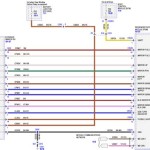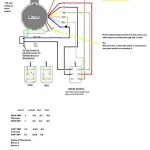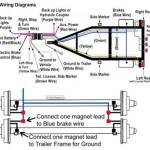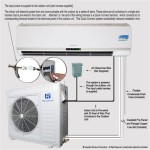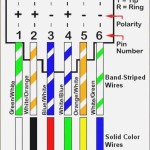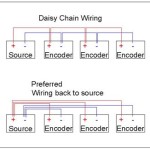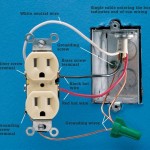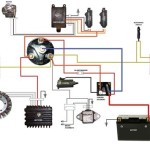Wiring a cargo trailer for 110v and 12v involves installing electrical systems within a cargo trailer to provide both alternating current (110v) and direct current (12v) power. This wiring enables the use of various appliances, lights, and tools within the trailer.
The 110v system is typically used for larger appliances such as refrigerators, microwaves, and air conditioners, while the 12v system is designed for smaller devices such as lights, fans, and charging ports. Wiring a cargo trailer for 110v and 12v is essential for creating a livable or functional space within the trailer, allowing for the use of basic amenities and electrical equipment.
This process has significant relevance in industries such as transportation, construction, or leisure, where cargo trailers are extensively used for hauling goods, equipment, or providing temporary shelter. The ability to connect appliances and tools within the trailer enhances efficiency, convenience, and comfort for individuals or businesses that rely on these mobile units.
Wiring a cargo trailer for 110v and 12v involves essential aspects that contribute to the functionality, safety, and convenience of powering appliances and devices within the trailer. These aspects encompass various elements of electrical systems, equipment, and installation practices.
- Electrical Wiring: The appropriate selection and installation of electrical wiring is crucial for ensuring the safe and efficient flow of electricity.
- Power Distribution: Proper power distribution ensures that electricity is safely distributed to various outlets and appliances within the trailer.
- Circuit Protection: Circuit breakers or fuses protect the electrical system from overloads and short circuits, preventing damage to appliances and ensuring safety.
- Grounding: Grounding provides a path for electrical current to flow safely back to the electrical source, protecting against electrical shocks.
- Lighting: Proper lighting is essential for visibility and comfort within the trailer, ensuring safety and functionality.
- Appliances: The selection and installation of appliances, such as refrigerators, microwaves, and air conditioners, require careful consideration of power requirements and compatibility with the electrical system.
- Battery: A battery provides backup power for 12v systems, ensuring continuity of operation during power outages or when the trailer is disconnected from an external power source.
- Converter: A converter transforms 110v AC power to 12v DC power, allowing for the operation of 12v appliances and devices.
These key aspects are tightly interconnected, and their proper implementation ensures a reliable and safe electrical system within the cargo trailer. Understanding and considering these aspects is essential for anyone looking to wire a cargo trailer for 110v and 12v.
Electrical Wiring
In the context of “Wiring A Cargo Trailer For 110v And 12v,” electrical wiring forms the backbone of the entire electrical system. The appropriate selection and installation of electrical wiring are paramount to the safe and efficient operation of all appliances and devices within the trailer.
Electrical wiring serves as the pathway for the flow of electricity throughout the trailer. Properly sized and rated wiring ensures that electrical current can be safely distributed to various outlets, appliances, and lighting fixtures. Inadequate or incorrectly installed wiring can lead to a range of issues, including voltage drops, overheating, and electrical fires.
For instance, if the wiring used for a high-power appliance like an air conditioner is too thin, it may overheat and become a fire hazard. Similarly, loose connections or damaged wiring can create electrical arcs, which can ignite flammable materials within the trailer.
By carefully selecting and installing electrical wiring that meets the specific requirements of the appliances and devices being used in the cargo trailer, one can mitigate these risks and ensure a safe and reliable electrical system.
Therefore, it is essential to consult with a qualified electrician or thoroughly research appropriate wiring practices and materials when undertaking the task of wiring a cargo trailer for 110v and 12v. This will help ensure the safe and efficient operation of the trailer’s electrical system.
Power Distribution
In the context of “Wiring A Cargo Trailer For 110v And 12v,” proper power distribution plays a critical role in ensuring the safe and efficient operation of all electrical systems within the trailer. It involves the careful planning and installation of electrical circuits and components to provide reliable and consistent power to various outlets, appliances, and lighting fixtures.
Power distribution is directly related to the wiring of the cargo trailer. The electrical wiring serves as the pathway for the flow of electricity from the power source to the various outlets and appliances within the trailer. Proper power distribution ensures that each circuit is adequately sized and protected to handle the electrical load of the connected devices.
For example, if a high-power appliance like an air conditioner is connected to a circuit that is not rated for its power consumption, it could overload the circuit, causing the circuit breaker to trip or the wiring to overheat. This could lead to a power outage or, in severe cases, an electrical fire.
Proper power distribution also involves the installation of surge protectors and ground fault circuit interrupters (GFCIs) to protect against electrical surges and shocks. These devices help ensure the safety of both the electrical system and the individuals using the appliances within the trailer.
By understanding and implementing proper power distribution techniques, one can mitigate risks, enhance the reliability of the electrical system, and ensure the safe and efficient operation of all appliances and devices within the cargo trailer.
In summary, power distribution is a vital aspect of wiring a cargo trailer for 110v and 12v. It involves the careful planning and installation of electrical circuits and components to provide reliable and consistent power to various outlets and appliances within the trailer, ensuring the safety and functionality of the electrical system.
Circuit Protection
In the context of “Wiring A Cargo Trailer For 110v And 12v,” circuit protection plays a critical role in safeguarding the electrical system and preventing potential hazards. Circuit breakers or fuses act as essential components within the electrical system, protecting against overloads and short circuits that could damage appliances, cause electrical fires, or pose a risk to individuals using the trailer.
Circuit protection works on the principle of interrupting the flow of electricity when it exceeds a safe level. When an electrical circuit becomes overloaded, drawing more current than it is designed to handle, the circuit breaker trips, or the fuse blows, effectively breaking the circuit and stopping the flow of electricity. This prevents the wiring from overheating, which could lead to a fire. Similarly, in the event of a short circuit, where electricity finds an unintended path back to the source, the circuit protection device interrupts the current flow, preventing damage to appliances and the electrical system.
Real-life examples of circuit protection within “Wiring A Cargo Trailer For 110v And 12v” include the use of circuit breakers in the main electrical panel of the trailer, which protect the entire electrical system from overloads. Additionally, individual appliances may have built-in fuses or circuit breakers to protect their internal components from damage due to electrical faults.
The practical significance of understanding circuit protection lies in ensuring the safety and reliability of the electrical system in a cargo trailer. Proper circuit protection prevents electrical fires, protects appliances from damage, and minimizes the risk of electrical shocks. It also allows for the safe operation of multiple appliances simultaneously by preventing overloads on the electrical system.
In summary, circuit protection is a critical component of “Wiring A Cargo Trailer For 110v And 12v.” Circuit breakers or fuses protect the electrical system from overloads and short circuits, preventing damage to appliances, ensuring safety, and enabling the reliable operation of the electrical system.
Grounding
In the context of “Wiring A Cargo Trailer For 110v And 12v,” grounding plays a critical role in ensuring the safety of the electrical system and protecting individuals from electrical shocks. It involves creating a conductive path for electrical current to flow safely back to the electrical source, preventing it from taking unintended paths and potentially causing harm.
- Grounding Electrode: The grounding electrode is a metal rod or plate that is driven into the ground and connected to the electrical system. It provides a low-resistance path for electrical current to flow into the earth, effectively grounding the electrical system.
- Grounding Conductor: The grounding conductor is a wire that connects the electrical system to the grounding electrode. It carries electrical current from the system to the ground, completing the grounding path.
- Equipment Grounding: Equipment grounding involves connecting the metal enclosures of electrical appliances and devices to the grounding conductor. This ensures that any electrical faults or surges are safely directed to the ground, preventing them from reaching individuals who may come into contact with the appliances.
- Ground Fault Circuit Interrupter (GFCI): A GFCI is a safety device that monitors the flow of electrical current in a circuit. If it detects an imbalance between the current flowing in the hot and neutral wires, indicating a potential electrical fault, the GFCI quickly interrupts the circuit, preventing electrical shocks.
Proper grounding is essential for the safe operation of electrical systems in cargo trailers. It minimizes the risk of electrical shocks, protects appliances and devices from damage, and ensures the reliable operation of the electrical system. By understanding and implementing proper grounding techniques, one can create a safe and functional electrical environment within the cargo trailer.
Lighting
In the context of “Wiring A Cargo Trailer For 110v And 12v,” lighting plays a critical role in creating a safe and functional environment within the trailer. Proper lighting ensures that individuals can safely navigate and perform tasks within the trailer, particularly in low-light conditions.
The connection between lighting and wiring is direct, as the electrical wiring provides the necessary power to operate lighting fixtures and devices. Without proper wiring, it would not be possible to install and utilize lighting within the cargo trailer.
Real-life examples of lighting within “Wiring A Cargo Trailer For 110v And 12v” include:
- Ceiling lights to illuminate the interior of the trailer.
- Task lighting above workbenches or storage areas.
- Exterior lighting for visibility and safety when parked.
Understanding the importance of lighting and its relationship with wiring enables individuals to design and implement effective lighting solutions within their cargo trailers. This ensures a safe and productive environment, whether for work, recreation, or storage purposes.
In summary, lighting is a critical component of “Wiring A Cargo Trailer For 110v And 12v,” providing visibility, comfort, and safety within the trailer. Proper wiring is essential to power lighting fixtures and devices, enabling individuals to create a functional and well-lit environment for their specific needs.
Appliances
When wiring a cargo trailer for 110v and 12v, selecting and installing appliances is a crucial step that demands meticulous attention to power requirements and compatibility with the electrical system. This plays a central role in ensuring the safe, efficient, and reliable operation of appliances within the trailer.
- Power Requirements: Each appliance has specific power requirements, indicated by its wattage or amperage. These requirements must be carefully matched to the capabilities of the electrical system. Connecting an appliance with excessive power demands to an underpowered system can lead to overloading, circuit tripping, or even electrical fires.
- Converter Compatibility: If the trailer’s electrical system is 12v and the appliance operates on 110v, a converter is necessary to transform the 12v power to 110v. The converter’s capacity must be sufficient to handle the appliance’s power requirements. Insufficient converter capacity can result in the appliance malfunctioning or even damage to the converter.
- Circuit Protection: Each appliance should be connected to a dedicated circuit with appropriate circuit protection, such as a circuit breaker or fuse. This ensures that in the event of an electrical fault or overload, the circuit will be disconnected, preventing damage to the appliance and potential electrical hazards.
- Proper Wiring: The wiring connecting the appliance to the electrical system must be of appropriate gauge and type to handle the appliance’s power requirements. Improper wiring can lead to voltage drops, overheating, and potential electrical issues.
Understanding and considering these facets of appliance selection and installation are essential for ensuring a well-functioning electrical system within the cargo trailer. Proper appliance integration enhances the functionality, comfort, and safety of the trailer, allowing for the convenient use of various appliances without compromising the integrity of the electrical system.
Battery
In the context of “Wiring A Cargo Trailer For 110v And 12v,” the incorporation of a battery plays a pivotal role in ensuring uninterrupted power supply to 12v systems within the trailer. It serves as a backup source of energy, maintaining the functionality of essential devices and appliances during power outages or when the trailer is detached from an external power grid.
- Battery Capacity: The capacity of the battery, measured in amp-hours (Ah), determines the amount of backup power available. It should be carefully chosen based on the power requirements and duration of expected outages to ensure sufficient runtime.
- Battery Type: Common battery types used in cargo trailers include lead-acid, AGM, and lithium-ion batteries. Each type offers unique characteristics in terms of lifespan, weight, and charging efficiency, influencing the choice based on specific needs.
- Charging System: The electrical system should include a charging mechanism to replenish the battery’s power. This can be achieved through a solar panel, a generator, or by connecting to an external power source when available.
- Battery Maintenance: Regular maintenance is crucial to extend the lifespan and ensure optimal performance of the battery. This includes monitoring its charge level, cleaning terminals, and periodically testing its capacity.
By incorporating a battery into the electrical system of a cargo trailer wired for 110v and 12v, users gain the advantage of reliable backup power, enhancing the functionality, comfort, and safety of the trailer. It allows for the continuous operation of essential appliances, lighting, and other 12v devices, even in the absence of an external power source.
Converter
Within the context of “Wiring A Cargo Trailer For 110v And 12v,” the incorporation of a converter plays a pivotal role in creating a functional and versatile electrical system. The converter serves as the bridge between the 110v AC power supply and the 12v DC appliances and devices used within the trailer.
- Types of Converters: Converters come in various types, each with its own characteristics and applications. Common types include pure sine wave inverters, modified sine wave inverters, and DC-DC converters, which differ in terms of power quality, efficiency, and cost.
- Power Capacity: The power capacity of the converter is crucial, as it determines the amount of power that can be drawn from the 110v AC source to supply the 12v DC devices. It should be carefully chosen based on the total power requirements of the appliances and devices used in the trailer.
- Installation: Proper installation of the converter is essential for its safe and efficient operation. This includes securely mounting the converter, connecting it to the 110v AC power source, and ensuring proper grounding to prevent electrical hazards.
- Battery Charging: Some converters also incorporate battery charging capabilities, allowing them to recharge the trailer’s battery when connected to an external 110v AC power source. This feature is particularly useful for extended periods of off-grid operation or when the trailer is not connected to a vehicle’s charging system.
By incorporating a converter into the electrical system of a cargo trailer wired for 110v and 12v, users gain the flexibility to operate a wide range of 12v appliances and devices, enhancing the trailer’s functionality and comfort. This allows for the use of various lighting fixtures, electronic equipment, and other DC-powered devices without the need for a dedicated 12v battery system.









Related Posts

